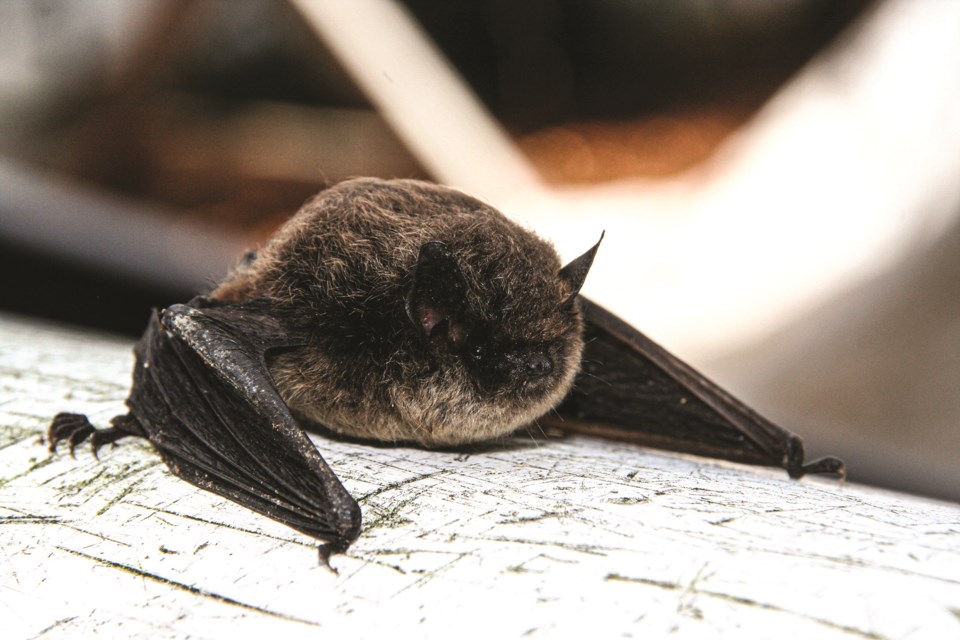B.C.’s bats are threatened by a fungal disease headed toward the province from both Alberta and Washington State. White-nose Syndrome (WNS) is deadly to bats but harmless to humans. It attacks bats during their winter hibernation. Bats often wake to clean the fungus from their skin, using valuable energy, and die from hypothermia and starvation.
To help monitor for the spread of WNS, the Sunshine Coast Wildlife Project is asking community members to report any bat activity observed in winter and any sick or dead bats found before May 31. Observations can help researchers identify regions with unusual bat activity and bat carcasses can be tested for the fungus.
Some healthy bats are also occasionally active in winter, and some bats have winter roosts in woodpiles, sheds, or under house trim. These sleeping bats should be left alone. Keep your distance, snap a photo, and report your sighting. If you must move a bat, remember to never touch it with your bare hands. Please note, if you or your pet has been in direct contact with a bat you will need further information regarding rabies risk.
Sunshine Coast residents can report bat sightings and known bat roosts online at at www.bcbats.ca or by email at [email protected]. If you have found a sick or dead bat, please call 604-989-1007.
Bat stewardship efforts on the Sunshine Coast are led by the Wildlife Project in collaboration with the BC Community Bat Program and Province of BC, and with funding from the Habitat Conservation Trust Foundation, Forest Enhancement Society of BC, Habitat Stewardship Program, Gencon Foundation, and the Fish and Wildlife Compensation Program. For more information about how to help bats, visit bcbats.ca.



